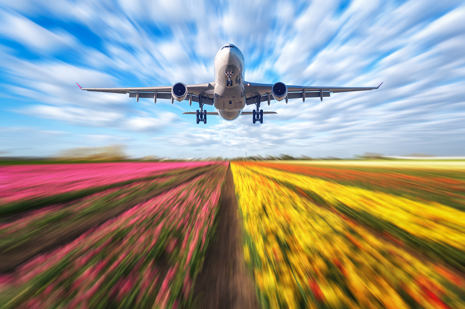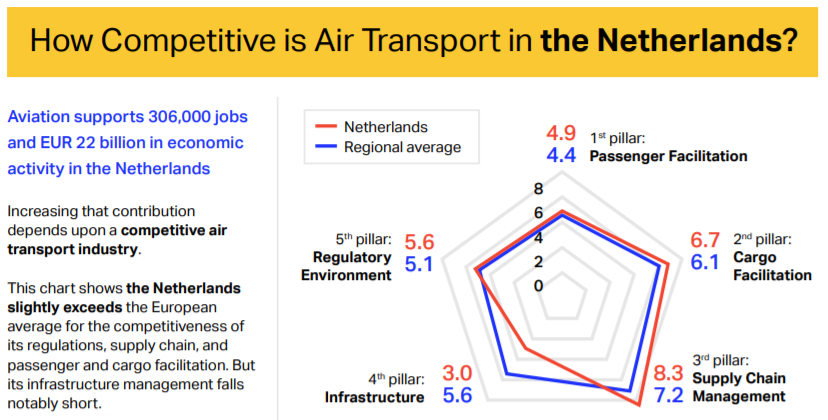
In association with the Dutch Board of Airlines Representatives (BARIN), IATA organized a side event during the Wings of Change Europe 2019 conference in Berlin, bringing together key industry players whose common efforts are required to ensure the Netherlands enhances its air transport competitiveness.
In addition to its strong aviation history and legacy (its flagship carrier, KLM, just turned 100 in October!), the Netherlands holds a particularly central role in European aviation, characterized by its leadership as a major connecting hub, as well as its economic power.
Air transport's contribution to the Netherlands´ economy at present is significant:
- 306,000 jobs supported
- €22 billion contributed (accounting for 3.2% of the Netherlands' GDP).

We use cookies to give you the best experience on our website. We also use cookies for advertising purposes. Please see our privacy policy and cookies policy for complete information.